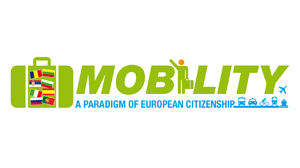Data and recommendations presented in the following documents are the result of the project "Mobility, a paradigm of European citizenship” which focuses on mobility as a way of living in Europe, namely as a tool to reduce barriers, promote identity and belonging to the same continent, uniform standards of service delivery and harmonize Community legislations. Mobility has been regarded as a real paradigm of European citizenship.
The project, developed from January to December 2013, allowed to know the views of citizens about the many challenges of mobility in the future of Europe: transport accessibility, environmental sustainability, citizens/passengers rights.
The project involved citizens from 8 countries: Bulgaria, Italy, Lithuania, Portugal, Romania, Serbia, Slovakia and Spain.
Methodology
Consultation involved citizens who, with the help of experts and facilitators, have learned to analyze the issues and difficulties related to mobility, identify possible solutions, transform them into recommendations and gather civic information.
The tool developed for a wider involvement was based on interviews addressing the main issues and possible recommendations to solve them.
It was developed in a participatory way among the partners, acknowledging and asking advice from institutions, experts, associations and operators, organizing, in the various countries involved, in depth debates.
The interviews were developed respecting the balance among the three main European challenges on mobility:
- social sustainability: accessibility to transport, in terms of presence/absence of alternatives to private individual mobility, architectural barriers, etc. and liveability, such as traffic congestion noise pollution, safety, etc.;
- environmental sustainability: issues relating to the environmental impact of transport and the promotion of non -polluting vehicles such as bicycles or vehicles powered by alternative fuels, as well as the promotion of new way of driving;
- economic sustainability: transport accessibility accessed from an economic point of view, therefore addressed as an expense for the city (the importance deregulating the sector, the need to introduce incentives, etc.);
- the rights and obligations of passengers/travellers, in terms of nondiscrimination, accuracy, timeliness, accessibility to information, solving inefficiencies and most importantly knowing one’s rights as passenger/traveller.
Each of these issues has been investigated using tools which have allowed us to highlight both the most critical points and the main civic proposals.
The interviews were addressed to passengers/travellers and commuters using public transport, railway stations and bus stops by trained citizens and is available also online on the websites of partner organizations, dedicated articles in newsletters and on social networks of associations.
Civic information approach
Data contained within National Reports have no statistical value but provide a picture in the field of mobility and transport through data collected by citizens and civic organizations. The methodology was inspired by the method of civic information, defined as the capacity for organized citizens to produce and use information to promote their own policies and participate in public policymaking, in the phase of definition and implementation as well as that of evaluation. According to this method, when citizens, despite their presumed lack of competence in the public sphere, organize themselves and take action together regarding public policies, they are able to produce and use information deriving from experts and other sources, as well as from their own direct experience with the issue being addressed. In this project, such method was implemented by involving civic organizations in the collection of information through interviews with citizens, passengers and commuters, which gives the possibility to put into practice the right to participate in the evaluation of services and policies. This could be an innovative side of this work, despite difficulties and obstacles which may be encountered, such as: possible criticism towards the output since it will not be a statistically representative research; an official dialogue with institutions and professionals is not always easy.
- Download National Report from Bulgaria
- Download National Report from Italy
- Download National Report from Lithuania
- Download National Report from Portugal
- Download National Report from Romania
- Download National Report from Serbia
- Download National Report from Slovakia
- Download National Report from Spain
- Download Regional Report from Italy (Emilia Romagna Region)
- Download National Leaflet - English version
- Download National Leaflet - Bulgarian version
- Download National Leaflet - Italian version
- Download National Leaflet - Lithuanian version
- Download National Leaflet - Portuguese version
- Download National Leaflet - Romanian version
- Download National Leaflet - Serbian version
- Download National Leaflet - Slovak version
- Download National Leaflet - Spanish version
The project is realized with the support of the Europe for Citizens Programme of the European Union.




